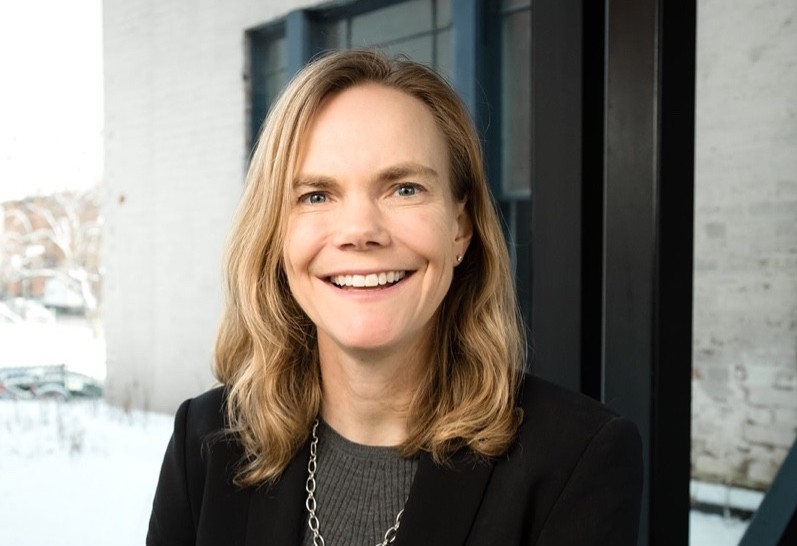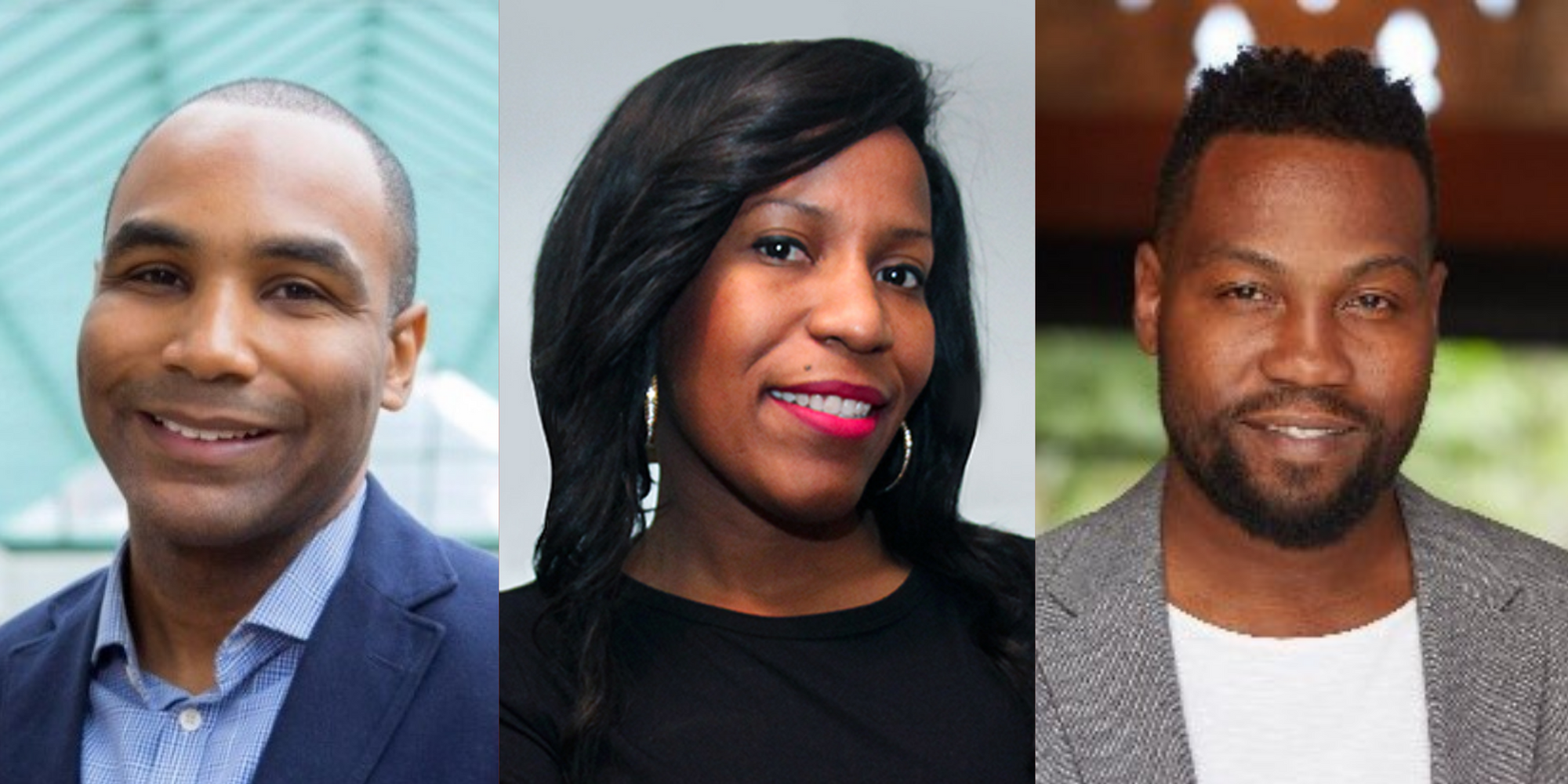Each year, C100 welcomes the founders of 20 of the most promising early-stage Canadian-led startups to its flagship mentorship program, C100 Fellows. This 8-month long program is dedicated to supporting these founders via curated mentorship, and peer-to-peer support. Fellows also receive a complimentary C100 Membership throughout the course of their program.
2022 was a record year for the Fellows program with over 450 applications from Canadian founders based all around the globe. The resulting cohort is a talented, visionary, and diverse group of Canadian founders. Represented across 9 cities, 60% of the cohort have one or more founders who identify as a visible minority, and 35% with at least 1 female founder, 5 of whom are CEO or President. Instrumental in shaping this year’s cohort is each individual who participated on the Fellows Selection Committee.
A heartfelt thank you to C100’s 2022 Fellows Selection Committee for your time and dedication to supporting Canadian entrepreneurs: Steven Abrams, Trevor Adey, Praveen Arichandran, Rikhil Bajaj, Andrew Batey, Steve Carlin, Cindy Chen, Shuo Chen, Carl Choi, Adrien Côté, Alexandra Cowie, Michael DiPaul, Tony Dong, Andrea Drager, Jonathan Ehrlich, Jon French, Andre Garber, Karim Gillani, Kate Grant, Megh Gupta, Tate Hackert, Morgan Hayduk, Jenny He, Chris Hobbs, Dylan Itzikowitz, Kimberly Kaplan, Mike Kirkup, Ian Klassen, Jamie Knowlton, Alexander Kolicich, Agnes Lan, James Langford, Edlynne Laryea, Jennifer Lee Koss, Dani Lipkin, Aidan Madigan-Curtis, Siavash Mahmoudian, Christiana Manzocco, Nadia Masri, Ron Matten, Joseph Mauceri, Lucas McCarthy, Anthony Mouchantaf, Hamzah Nassif, Marcus New, Michael Nicolls, Thomas Park, Parasvil Patel, Andre Peréy, Rahul Raj, Vivek Ramaswami, Aliya Ramji, Ryan Randall, Tim Regnier, Claudio Rojas, Jamie Rosenblatt, David Rozin, Shez Samji, Ben Sanders, Maximilian Schmeiser, Mike Schmidt, Joanna Lee Shevelenko, Benji Shomair, Emily Smiley, David Steckel, Jeffrey Truong, Marianne Wu, Shahram Yousefi, Lu Zhang, and Youssef Zohny.
“I’m thrilled by the talent and audacity of this year’s group of Fellows. The success of this program owes to the incredible personal contributions of the C100 community to support, inspire, and challenge the Fellows to broaden their horizons and reach new heights. I couldn’t be more grateful for all these efforts. It takes a village!”
— Adam Shevell
Fellows Selection Committee Chair and Partner at Wilson Sonsini Goodrich & Rosati
Meet the 2022 C100 Fellows cohort:
Accord

📍 San Francisco Bay Area, CA
Website | LinkedIn | Twitter
Ross Rich, Co-Founder & CEO | LinkedIn | Twitter
Ryan Rich, Co-Founder & CPO | LinkedIn
Accord is the world’s first Customer Collaboration Platform. It helps Sales and Success leaders ensure the perfect sales and onboarding process. Close more deals faster, and activate every user. Last February, Accord launched with a $6M USD seed round from Stripe & Y Combinator.
AVIRON

📍 Toronto, ON
Website | LinkedIn | Twitter | IG
Andy Hoang, Founder & CEO | LinkedIn | Twitter
Inessa Karlinsky, CMO | LinkedIn | Twitter
Aviron is a game-led connected rowing machine that combines the increased confidence and resiliency benefits of gaming with low-impact high-intensity workouts that tap into users’ competitive side. In Feb 2022, Aviron announced it raised a $23.6M CAD Series A Led by Stripes, with follow-on by Global Founders Capital, Formic Ventures, Behind Genius Ventures, and 24-Hour Fitness Founder Mark Mastrov.
AXYA

📍 Westmount, QC
Website | LinkedIn | Twitter
Félix Bélisle-Dockrill, Co-Founder & CEO | LinkedIn
Axya partners with Canadian manufacturing businesses to optimize their outsourcing process for their needs in custom metal working parts. From potential supplier identification to quote management, Axya enables users to digitize their projects, manage requests for quotes and follow their projects pipelines.
Axya announced that it closed its second seed round of funding in February 2022, bringing the total amount invested in its platform to $5.4M.
Calico

📍Toronto, ON
Website | LinkedIn | Twitter
Kathleen Chan, Founder & CEO | LinkedIn | Twitter
Calico’s platform is everything eCommerce brands need before their products get on Shopify and Stripe. They are the product development OS that powers the $1.4 trillion eCommerce production market from concept to doorstep. This March, Calico announced that it raised $2.6M in seed funding led by Serena Ventures, Serena Williams’ tech investment firm, with participation from Maple VC, Hyphen Capital, Roach Capital and a number of angel investors.
Float

📍 Toronto, ON
@floatcard | Website | LinkedIn | Twitter
Ruslan Nikolaev , Co-Founder | LinkedIn | Twitter
Rob Zhazzam, Co-Founder & CEO | LinkedIn
Float is an all-in-one corporate card & spend management solution that helps Canadian businesses control their spending. This past November, Float announced its $30M Series A round, led by Tiger Global.
Forma.ai

📍 Toronto, ON
Website | LinkedIn
Nabeil Alazzam, Co-Founder & CEO | LinkedIn
Forma.ai is the first and only incentive compensation platform that drives revenue growth. Our unique, data model-driven approach uses science to help enterprises design, execute, and optimize their sales compensation to produce unparalleled results. In March 2021, Forma.ai announced it closed a $10M Series A, led by Crosslink Capital and supported by Golden Ventures (C100 Partner), Panache Ventures, Uncork Capital, and Xfund.
Jaza

📍 New York, NY
Website | LinkedIn | Twitter
Jeff Schnurr, Co-Founder & CEO | LinkedIn | Twitter
Jaza works to power the 600,000,000 people living in Africa without access to energy. Jaza builds solar-powered Hubs to charge batteries that customers use for residential power. 100% of operations are run by women. In March 2020, Jaza Energy closed its $1.7M USD round in seed funding and was named the 2021 Scale-Up Project of the Year.
Ledn

📍 Toronto, ON
Website | LinkedIn | Twitter | IG
Adam Reeds, Co-Founder & CEO | LinkedIn
Mauricio Di Bartolomo, Co-Founder & CSO | LinkedIn | Twitter
Ledn provides financial products with a mission to help clients across the globe unlock the power of digital assets to build wealth for the long term. With registered clients from over 127 countries, Ledn offers savings, credit and trade products. This past December, Ledn announced that it raised $70M USD in Series B funding in an all-equity round led by 10T Holdings, with participation from Golden Tree Asset Management, Raptor Group, and FJ Labs.
Lydia.ai

📍 Toronto, ON
Website | LinkedIn
Christina Cai, Co-Founder & COO | LinkedIn
Anthony Lee, Co-Founder & CEO | LinkedIn
Lydia AI is a health AI insurtech startup on a mission to insure the next billion people by making insurance personalized, easier to buy and more inclusive through the use of new source of data. This past October, Lydia AI announced the closing of its $10M USD Series A+, led by Information Venture Partners.
Manifest Climate

📍 Toronto, ON
Website | Linkedin | Twitter
Laura Zizzo, Co-Founder & CEO | LinkedIn | Twitter
Jeremy Greven, Co-Founder & President | LinekdIn
Manifest Climate is a climate-focused SaaS company powered by AI and climate expertise, empowering organizations to learn, govern, and disclose climate-related risks and opportunities. Manifest Climate track and benchmarks climate trends and build climate competence internally.
Manifest Climate recently announced $30M CAD in Series A funding, led by BDC Capital Women in Technology Venture Fund and Climate Innovation Capital, with participation from OMERS Ventures, Golden Ventures (C100 Partner), Garage Capital, Active Impact Investments, Klass Capital and Bryker Capital, and influential angel investors.
Penfield.ai

📍 Toronto, ON
Website | LinkedIn | Twitter
Tahseen Shabab, Co-Founder & CEO | LinkedIn
Penfield.AI is the first Human-Machine Intelligence platform in Cybersecurity. Penfield.AI models the skill sets of Analysts and their Processes in real-time, enabling real-time decisions to improve the speed and accuracy of Incident Resolution.
Pine

📍 Toronto, ON
Website | LinkedIn
Justin Herlick, CEO | LinkedIn
Jonathan Shih, Co-Founder & CTO | LinkedIn
Pine is a direct-to-consumer mortgage fintech for the Canadian market.
PurposeMed

📍Calgary, AB
Website | LinkedIn | IG (Freddie) | IG (Frida)
Husein Moloo, Co-Founder & CEO | LinkedIn
Amaan Banwait, Co-Founder & CCO | LinkedIn
PurposeMed builds telemedicine companies that deliver complex care to underserved Canadians. Our first vertical, Freddie, provides HIV prevention online. Our second vertical is Frida, which provides mental healthcare online, starting with ADHD.
RockMass Technologies

📍 Vancouver, BC
Website | LinkedIn | Twitter
Shelby Yee, Co-Founder & CEO | LinkedIn | Twitter
Matthew Gubasta, Co-Founder & President | LinkedIn
RockMass is an infrastructure and mining technology startup that enables engineers and geologists to improve the safety and efficiency of major projects through improved access to geological data. In December 2020, RockMass announced it raised$2.5M CAD in seed funding.
Shopthing

📍 Toronto, ON & New York, NY
Website | LinkedIn | IG | TikTok
Maggie Adhami-Boynton, Founder & CEO | LinkedIn
At ShopThing, we’re transforming the way people shop and sell through live video commerce. We’re bringing this $430 billion gig economy to North America with the help of top-tier retail brands and influencers. This March, ShopThing announced it closed a $10M USD Series A round led by Origin Ventures, with participation from Pritzker Group and Interplay.
Spare

📍 Vancouver, BC
Website | LinkedIn
Kristoffer Vik Hansen, Co-Founder & CEO | LinkedIn
Spare is an enterprise SaaS platform and a mobility operating system, and we are on a mission to empower everyone to unlock the potential of transportation. This past November, Spare announced that it raised a $18M Series A round, led by Inovia Capital with participation from Kensington Capital, Link VC, Ramen VC, Ridge Ventures, TransLink Capital and Japan Airlines (as JAL Innovation Fund) and Nicola
Wealth, among others.
Stadium Live

📍 Toronto, ON
Website | LinkedIn | Twitter | TikTok | IG | Discord
Kevin D.H Kim, Co-Founder & CEO | LinkedIn | Twitter
Stadium Live Studios is building a metaverse where Gen Z’s fans can meet, create and play around sports & culture. Stadium Live is backed by USV, KB Partners, Golden Ventures, and the founders of NBA Top Shot, Club Penguin, and Drop.
Twentyeight Health

📍 San Francisco Bay Area, CA
Website | LinkedIn | Twitter
Amy Fan, President, CPO & Co-Founder | LinkedIn | Twitter
Twentyeight Health is a mission-driven women’s health platform providing accessible reproductive and sexual health services to underserved communities through telemedicine & medication delivery and the first digital platform focused on Medicaid.
Venue.live

📍Toronto, ON
Website | LinkedIn | Tiwtter
Jason Goldlist, Co-Founder & CEO | LinkedIn | Twitter
Venue makes large remote meetings more fun by offering an interactive live streaming platform. Companies like Shopify use Venue every day for Town Halls, Kickoffs, AMAs, and more. Venue.live most recently participated in Y Combinator’s Winter 2022 Demo Day.
Wrk Technologies

📍 Montreal, QC
Website | LinkedIn | Twitter | Facebook
Mohannad El-Barachi, Co-Founder & CEO | Twitter
David Li, Co-Founder & COO | LinkedIn | Twitter
Wrk is the world’s first delivery engine. Our platform enables organizations to create digital versions of their internal business processes through a library of pre-built robots called Wrk Actions that deliver their work, at scale, and on-demand.
This February, Wrk announced it closed $55M in cumulative seed, Series A, and debt financing after completing its Series A led by White Star Capital and OMERS Ventures. This included $12.5M previously raised by original seed investors including Real Ventures (C100 Partner) and Desjardin Capital.
The 2022 Fellows program officially kicks off at C100’s flagship event in the Bay Area, 48Hrs, taking place on May 11–12. This event is open to C100 Members, Charter Members, and Partners. Registration opens this Friday! To RSVP, please keep an eye out in your inbox or log into the C100 Member’s Wiki.
THANK YOU TO OUR PARTNERS WHO HELP MAKE THIS PROGRAM POSSIBLE
This program is generously made possible with the help of C100’s Foundational and Corporate Partners. Thank you for your dedication to the Canadian tech ecosystem and for supporting these rising founders.
FOUNDATIONAL PARTNERS

CORPORATE MEMBERS

Not a Member? Learn more about the membership and submit your application to join here!
Have questions about the Fellows program? Contact the C100 team at connect@thec100.org.











-min.jpg)
.jpg)
.jpg)






















